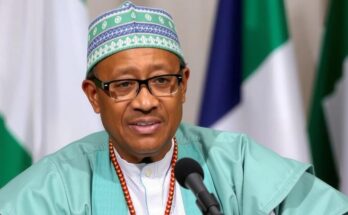Kenya’s Deputy President Rigathi Gachagua was impeached by the Senate on five of eleven charges, following an overwhelming vote from the National Assembly. Gachagua, who failed to attend the trial due to severe chest pains, had faced serious allegations including constitution violations. This historic move signifies the first impeachment of a deputy president since Kenya’s 2010 constitution and highlights growing tensions within the government, particularly with President William Ruto. Gachagua may challenge the impeachment in court, while Ruto has two weeks to nominate a successor.
In a significant and unprecedented political development, Deputy President Rigathi Gachagua of Kenya was impeached on Thursday during a Senate trial that concluded with votes on five out of eleven charges against him. This historic event represents the first impeachment of a deputy president since the introduction of the revised 2010 constitution. Gachagua, who is 59 years old and was absent from the proceedings due to a health emergency, faced serious allegations including corruption, abuse of office, and gross violations of the constitution. The impeachment was initiated after the National Assembly, the lower house of parliament, decisively approved a motion for his removal with an overwhelming majority vote of 282 out of 349 members. Senate Speaker Amason Kingi announced the Senate’s resolution to remove Gachagua, stating, “The Senate has resolved to remove from office, by impeachment, his excellency Rigathi Gachagua, the deputy president of the Republic of Kenya.” Although Gachagua was acquitted of certain charges, he was found guilty of promoting ethnically divisive politics and threatening judges. He has vehemently denied the allegations, dismissing them as baseless and part of a politically motivated campaign against him. This impeachment represents a culmination of growing tensions between Gachagua and President William Ruto, with whom he had previously partnered in the 2022 election. With the deputy president’s exit, political uncertainty looms over the country, raising questions about the governance of one of East Africa’s most politically stable nations. Gachagua’s lawyers protested the proceedings after he was hospitalized, contending that his right to a defense was violated. While no criminal charges have been filed against Gachagua, he may challenge the impeachment in court as the parliamentary process has concluded. Following the impeachment, President Ruto has a fourteen-day period to nominate a successor, with candidates such as Interior Minister Kithure Kindiki and Foreign Minister Musalia Mudavadi emerging as potential frontrunners. As political unrest and protests regarding taxation issues continue to affect the country, Gachagua has urged his supporters to maintain peace and unity, stating, “Let’s preach and maintain peace irrespective of the outcome. Kenya is our country.”
The impeachment of Deputy President Rigathi Gachagua is notable not only for its historical significance as the first such event since the constitutional change in 2010, but also for the broader implications it holds for political stability in Kenya. Gachagua’s removal stems from a backdrop of increasing friction within the government’s upper echelons, particularly following allegations of corruption and misconduct that have surfaced amid widespread public discontent over tax increases. The nationalist sentiment and controversies surrounding the political landscape, combined with Gachagua’s previously established alliances, highlight the complex dynamics at play. As the nation reflects on this unprecedented move, the consequences of this impeachment will likely influence Kenya’s political future.
In conclusion, Deputy President Rigathi Gachagua’s impeachment marks a historic and pivotal moment in Kenyan politics, illustrating profound political rifts and the potential for instability within the government. As he navigates the aftermath of this unprecedented event, attention turns to President William Ruto and the choices he will make regarding Gachagua’s successor. The situation remains volatile as the nation grapples with calls for stability and political reform.
Original Source: www.seychellesnewsagency.com




